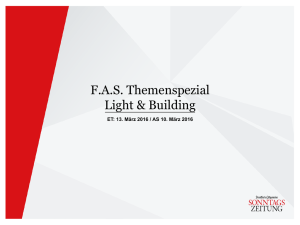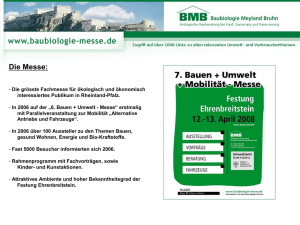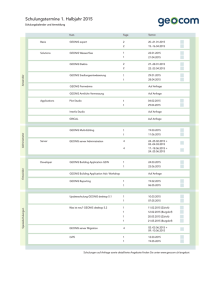Baukultur mit Tonbaustoffen · Building with clay
Werbung
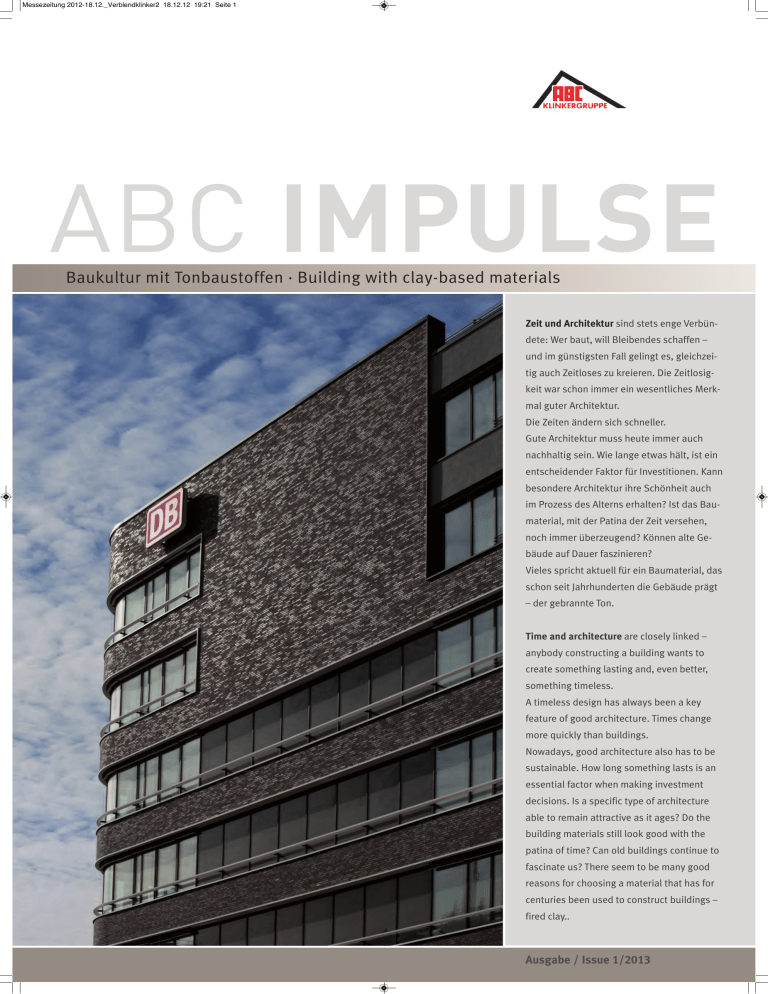
Messezeitung 2012-18.12._Verblendklinker2 18.12.12 19:21 Seite 1 ABC IMPULSE Baukultur mit Tonbaustoffen · Building with clay-based materials Zeit und Architektur sind stets enge Verbündete: Wer baut, will Bleibendes schaffen – und im günstigsten Fall gelingt es, gleichzeitig auch Zeitloses zu kreieren. Die Zeitlosigkeit war schon immer ein wesentliches Merkmal guter Architektur. Die Zeiten ändern sich schneller. Gute Architektur muss heute immer auch nachhaltig sein. Wie lange etwas hält, ist ein entscheidender Faktor für Investitionen. Kann besondere Architektur ihre Schönheit auch im Prozess des Alterns erhalten? Ist das Baumaterial, mit der Patina der Zeit versehen, noch immer überzeugend? Können alte Gebäude auf Dauer faszinieren? Vieles spricht aktuell für ein Baumaterial, das schon seit Jahrhunderten die Gebäude prägt – der gebrannte Ton. Time and architecture are closely linked – anybody constructing a building wants to create something lasting and, even better, something timeless. A timeless design has always been a key feature of good architecture. Times change more quickly than buildings. Nowadays, good architecture also has to be sustainable. How long something lasts is an essential factor when making investment decisions. Is a specific type of architecture able to remain attractive as it ages? Do the building materials still look good with the patina of time? Can old buildings continue to fascinate us? There seem to be many good reasons for choosing a material that has for centuries been used to construct buildings – fired clay.. Ausgabe / Issue 1/2013 Messezeitung 2012-18.12._Verblendklinker2 18.12.12 10:44 Seite 2 2 Dynamische Formen in Hammerbrook. Dynamic forms in Hammerbrook. Architektur: KSP Jürgen Engel Architekten, Braunschweig www.ksp-architekten.de Klinker: www.abc-klinker.de Atlantis FS / DF Projekt: Deutsche Bahn Zentrale Hamburg Bruttogeschossfläche ca. 35.000 qm Baukörper-Länge: 110 Meter DB office block “Hammerbrookhöfe” The building’s distinctive feature is the subdivision of the façade with horizontal window strips, a design that is typical of classical modernist architecture in Hamburg. The building’s base and spandrels are faced with clay bricks in a reddish-brown anthracite colour. Rounded bricks were produced especially for the corners of the building. KSP Architekten: “The use of bricks is a reference to the building tradition in Hamburg. At the same time, however, the architecture with the horizontal window strips and rounded corners is modern and dynamic.” Structure: The internal layout of the office building is characterised by a comb-like structure. It has been designed to provide natural light to the work stations and views of leafy courtyards and the canal. A main communications axis, or thoroughfare, stretches along the centre of the approximately 110-meter-long building, connecting up all areas of the building with short walking distances. Rooftop terraces and leafy courtyards enhance the high-quality feel of the building. A forecourt with an outside staircase down to the banks of the canal leads the visitors to the main entrance and impressive reception hall. The building, which cost 53 million Euro to construct, was completed at the end of 2012. Messezeitung 2012-18.12._Verblendklinker2 18.12.12 10:46 Seite 3 3 DB-Bürogebäude „Hammerbrookhöfe“ Auffälliges Merkmal der Gestaltung ist die Gliederung der Fassaden durch horizontale Fensterbänder, die in ihrer Ausprägung an die klassische Moderne in Hamburg erinnern sollen. Sockel und Brüstungen sind mit rotbraungebranntem Ziegelmauerwerk verkleidet. Für die abgerundeten Gebäudeecken wurden Formsteine gefertigt. KSP Architekten: „Die Verwendung von Ziegeln ist eine Referenz an die Hamburger Bautradition. Zugleich ist die Architektur mit den horizontalen Fensterbändern und abgerundeten Gebäudekanten modern und dynamisch.“ Struktur: Die interne Organisation des Bürogebäudes wird bestimmt durch eine Kammstruktur. Sie ermöglicht eine natürliche Belichtung der Arbeitsplätze sowie Ausblicke in begrünte Höfe und in Richtung Mittelkanal. Eine zentrale Haupterschließungsachse, die sogenannte Magistrale, erstreckt sich entlang der Mittelachse des rund 110 Meter langen Baukörpers und erschließt alle Bereiche des Hauses auf kurzem Wege. Dachterrassen und begrünte Höfe sorgen für Aufenthaltsqualität. Ein Vorplatz mit Freitreppe hinunter zur Uferpromenade am Mittelkanal leitet die Besucher zum Haupteingang mit repräsentativer Eingangshalle. Das Gebäude mit Baukosten von 53 Millionen Euro wurde Ende 2012 fertiggestellt. Atlantis Sonderbrand Messezeitung 2012-18.12._Verblendklinker2 18.12.12 10:47 Seite 4 4 Deutsches Zentrum für Luft- und Raumfahrt. Scorched. German Aerospace Center. Projektdaten · Project data Bauherr Deutsches Zentrum für Luft- und Raumfahrt e. V. Ort Bremen Projektkosten 11,4 Mio Euro 2 BGF 3.850 m Fertigstellung 2011 Architektur Fassade kister scheithauer gross Architekten und Stadtplaner GmbH, Köln/Leipzig www.ksg-architekten.de ABC-Keramikfassade Messezeitung 2012-18.12._Verblendklinker2 18.12.12 10:49 Seite 5 5 Am nördlichen Rand des Bremer Hochschulcampus scheint ein quadratischer Monolith aus dem Weltall gelandet zu sein. Was dabei anmutet wie ein vom Hitzeeintritt in die Erdatmosphäre gebeuteltes Objekt, ist das neue Forschungsgebäude des Instituts für Raumfahrtsysteme am Deutschen Zentrum für Luft- und Raumfahrt. Located at the northern edge of the Bremen university campus, a squareshaped monolith seems to have landed from outer space. What looks like something that has suffered heat damage upon re-entry into the Earth´s atmosphere is in fact the new research building of the Institute of Space Systems at the Deutsches Zentrum für Luft- und Raumfahrt. Der Neubau sollte nach den Plänen von kister scheithauer gross (ksg) Architekten aus Köln bereits außen vermitteln, für welche Nutzung er steht. Die dabei investierte Entwicklungszeit von einem Jahr war nötig, da den Architekten, allen voran Professor Johannes Kister als leitendem Partner des Büros, die Anmutung der Fassade sehr wichtig war. Um nämlich den Eindruck eines Hitzeschutzschildes zu erzeugen, mussten die Kacheln rau und von der Hitze gezeichnet wirken. Um dies zu erreichen, wurden die Rohlinge der 20 x 20 cm großen Kacheln mit Schlämmen besprüht, die verschiedenen Spritzbildern folgen. Da diese Schlämme beim Brennen versintern, also mit dem Rohling der Keramik-Kachel verbacken, erhielten die Fassadenkacheln ihre grau-schwarze Färbung sowie die matte, raue Oberfläche. The Cologne-based architects kister scheithauer gross (ksg) wanted the exterior of the new building to reflect what goes on inside. A full year went into developing the plans, time that was necessary because the appearance of the façade was extremely important for the architects, in particular for Professor Johannes Kister, the Managing Partner of the agency. To create the impression of a heat shield, the tiles had to look rough and scorched. To achieve this, the raw 20 x 20 cm tiles were sprayed with slurry in different spray patterns. As slurry sinters when fired, i.e. bakes into the raw ceramic tiles, the result was façade tiles with a gray-black colour and a matt, coarse surface. Keramikfassade auf WDV-System Messezeitung 2012-18.12._Verblendklinker2 18.12.12 10:53 Seite 6 6 Bewegung in der Stadt. Movement in the city. Der Dantes-Platz ist Teil des »Metropolitan Zone Projekt Vester Voldgade« der Stadt Kopenhagen. Er präsentiert sich als öffentlicher Raum an herausragender Stelle der Stadt, zwischen dem »National Museum of Denmark« und dem »Museum Ny Carlsberg Glyptotek« gelegen. Dante's Square is part of the “Metropolitan Zone Project Vester Voldgade” of the City of Copenhagen. It is a prominently located public space in the city – situated between the “National Museum of Denmark” and the “Ny Carlsberg Glyptotek” art museum. Gestaltung: Teile des Dantes-Platzes sind in welligen Formen angelegt. Die Höhe dieser »Bodenwellen« schafft eine visuelle und räumliche Distanz zu den parkenden Fahrzeugen und dem vorbeilaufenden Straßenverkehr. Die bewegten Wellen des Platzes laden zum aktiven Spielen und Verweilen ein. Gleichzeitig bleibt der Raum für alle Verkehrsströme von Fußgängern und Radfahrern in allen favorisierten Richtungen offen. Die beiden großen zentral gelegenen Wellen erlauben vielfältige Nutzung und zentrieren die Mitte des Platzes. Design: Parts of Dante's Square have been designed in undulating forms. The height of these “ground waves” generates visual and spatial distance to the parked cars and passing traffic. The square’s rolling waves invite passers-by to actively play and linger there. At the same time, the space remains open for the flows of pedestrians and cyclists moving in all main directions. The two large centrally installed waves can be used in a variety of ways and provide a centrepiece for the square. Die Kohle-gelben ABC-Klinker sind in einem schmalen Riegelformat und deutlich richtungsweisend verlegt worden. Die Klinker korrespondieren mit den Farben der umgebenden Gebäude, der GlyptotekFassade und der eher verhaltenen gelb-braunen Fassade des National Museums. Der Dantes-Platz erfährt eine große Akzeptanz als öffentlicher Stadtraum, innerhalb der Bevölkerung Kopenhagens. The amber-coloured ABC clinker bricks have a slim strip format and have been laid clearly facing in the same direction. The colour of the clinker bricks matches the colour of the surrounding buildings, the Glyptotek façade and the rather restrained yellow-brown façade of the National Museum. Dante's Square is a very popular public area among the inhabitants of Copenhagen. The Dante-place experiences a high level of acceptance as a public urban space within the population Kopenhagens. Kopenhagen Pflasterklinker gelb Kohlebrand, Format: 320 x 52 x 71 mm Gotland Pflasterklinker braun-blau-bunt, Format: 292 x 71 x 71 mm Messezeitung 2012-18.12._Verblendklinker2 18.12.12 10:56 Seite 7 7 Architektur GHB Landskabsarkitekter a/s [email protected] Projekt Dantes Platz, Kopenhagen Metropolitan Zone Projekt Vester Voldgade Malmö Pflasterklinker blau-bunt-Schmolz, Format: 320 x 50 x 100 mm Messezeitung 2012-18.12._Verblendklinker2 18.12.12 10:57 Seite 8 8 Messezeitung 2012-18.12._Verblendklinker2 18.12.12 10:58 Seite 9 9 Papendrecht, Rotterdam Architektur: Projektleitung: Klinker: Typ: KCAP ARCHITECTS & PLANNERS, Rotterdam Irma van Oort www.abc-klinker.de ABC-Langformat® · rot-bunt-Schmolz Es ist schon ein überraschendes, ungewöhnliches Gebäude, das fast wie ein Walfisch direkt an der Straße liegt – ein Gebäude mit großer städtebaulicher Bedeutung für den Ort Papendrecht, vor den Toren von Rotterdam. Nutzungsvorgaben: So lang das Gebäude auch erscheinen mag, die Nutzungsvorgaben waren eine Herausforderung an das Architekturbüro KCAP Architects & Planners. 146 Parkplätze, 1.350 qm Ladenlokale, Büroflächen und Wohnungen waren auf dem schmalen Grundstück zu realisieren. Wie eine Mauer schützt nun das Bauwerk, das dahinter liegende Einkaufszentrum des Ortes vor dem Straßenverkehr und bietet dabei Raum für unterschiedlichste Nutzung. Die Zufahrt des Parkhauses liegt auf einer Ebene unterhalb der Zufahrtsstraße – die wahre Größe des Bauwerkes ist auf den ersten Blick also kaum zu erfassen. Die Anforderungen an den Fassadenziegel waren ebenso vielschichtig wie die an das Bauwerk. Ein typisch niederländisches Farbenspiel wurde gewünscht. Der ABC-Langformatziegel ermöglicht ein Gittermauerwerk zur Belüftung und Gestaltung der Parkgarage. Die Oberflächenglasur des Ziegels schützt die Fassade dauerhaft vor den extremen Belastungen eines Einkaufszentrums. It is a surprising and unusual construction, built directly adjacent to the road almost like a whale, and also an important building in terms of urban development for the town of Papendrecht, situated on the outskirts of Rotterdam. Usage specifications: Although the building looks long, the space programme was a major challenge for KCAP Architects & Planners: 146 parking spaces, 1,350 m² of commercial premises, office space and apartments all had to fit onto the narrow plot. The building is like a wall that protects the town’s shopping centre located behind it from the traffic and, at the same time, provides space for diverse functions. The car park is accessed from a level below the approach road – so the sheer size of the building is not immediately visible. The client’s brief with regard to the façade bricks was as complex as the brief for the entire building. They wanted a typically Dutch interplay of colours. The car park was constructed using ABC long-format tiles with a broken brickwork design to allow ventilation. The tile’s glazed surface permanently protects the façade from the extreme pressures associated with a shopping centre location. Messezeitung 2012-18.12._Verblendklinker2 18.12.12 11:00 Seite 10 10 Farbe erleben, Farbe verstehen. Experience colour, understand colour. The colour of façades · The character of a work of architecture is determined not only by the shape and size of the building and its rooms, but also by the material, texture and colour of its surface. These sensory aspects have a critical impact upon the visual impression of a building and its interior. Colour is what we see – it is a visual perception. Colour is a fundamental element in architecture and architectural design. Colour in urban spaces · The appearance of a city is largely shaped by the impact of the colours in public spaces; the colour of the streets and paving stones therefore play a key role. Urban environments and colour form a unit and therefore ensure a coherent cityscape. The value of public spaces, and the way we perceive them, is largely shaped by the quality of the design concepts. Messezeitung 2012-18.12._Verblendklinker2 18.12.12 11:01 Seite 11 11 1010 Discovery Langformat Hamburger Fußsortierung DF 6654 Discovery Hamburger Fußsortierung NF Farbe der Fassaden · Der Charakter eines Werks der Architektur ist nicht nur durch Form und Größe des Gebäudes und seiner Räume bestimmt, sondern ebenso durch das Material, die Textur und Farbe seiner Oberfläche. Diese sinnlichen Wahrnehmungsaspekte beeinflussen die Erscheinung eines Gebäudes und seiner Räume in entscheidender Weise. Farbe ist, was wir sehen – eine visuelle Empfindung des Menschen. Farbe ist ein ganz wesentliches Element der Architektur und somit der architektonischen Gestaltung. Farbe im Stadtraum · Das charakteristische Erscheinungsbild der Stadt wird zu einem großen Teil über die Farbwirkung des öffentlichen Raumes geprägt, dabei spielt die Farbe der Straßen und Pflasterungen eine wesentliche Rolle. Stadtraum und Farbe bilden eine Einheit und sorgen somit für ein zusammenhängendes Stadtbild. Die Wertigkeit und die Wahrnehmung des öffentlichen Raumes wird zu einem großen Teil über die Qualität der Gestaltungskonzepte geprägt. 1010 Discovery Langformat Hamburger Fußsortierung DF 1030 Atlantis Langformat Hamburger Fußsortierung DF Messezeitung 2012-18.12._Verblendklinker2 18.12.12 19:21 Seite 12 Made in Germany Zentrale ABC-Klinkergruppe Grüner Weg 8 · D-49509 Recke Tel. 054 53 / 93 330 · Fax 054 53 / 93 33 45 [email protected] www.abc-klinker.de Recker Ziegelwerk · Berentelg & Hebrok OHG Mettinger Straße 135 · D-49509 Recke Tel. 0 54 53 / 9 30 50 · Fax 0 54 53 / 93 05 55 Klinkerwerk Hörstel · A. Berentelg & Co. KG Dornierstraße 11 · D-48477 Hörstel Tel. 0 54 59 / 93 430 · Fax 0 54 59 / 93 43 30 Ausstellung „Ringofen“ im Klinkerwerk Tel. 0 54 59 / 93 43 11 Klinkerwerk Schüttorf · A. Berentelg & Co. KG An der Ziegelei 6 · D-48465 Schüttorf Tel. 0 59 23 / 96 000 · Fax 0 59 23 / 96 00 20 Hollager Ziegelwerk Berentelg & Hebrok GmbH & Co. KG Hollager Straße 106 · D-49134 Wallenhorst-Hollage Tel. 0 54 07 / 8 30 40 · Fax 0 54 07 / 5 93 30 KDW-Klinkerdachziegelwerk GmbH & Co. KG Ziegeleiweg 1b · D-49170 Natrup-Hagen Tel. 0 54 05 / 6 19 19 60 · Fax 0 54 05 / 6 19 19 70 ABC-Keramik H & R Berentelg GmbH & Co. KG Industriestraße 10 D-49492 Westerkappeln Tel. 0 54 56 / 93 470 · Fax 054 56 / 93 47 40 5954 Dresden schwarz-blau bunt glatt NF, Schattenfuge
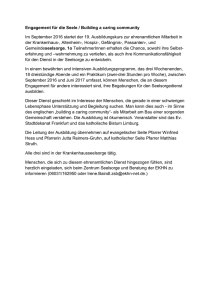
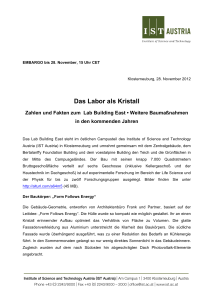
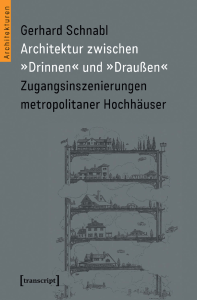
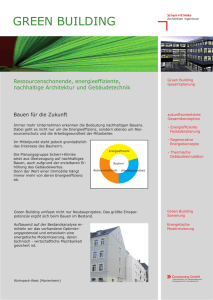
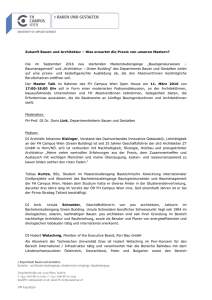
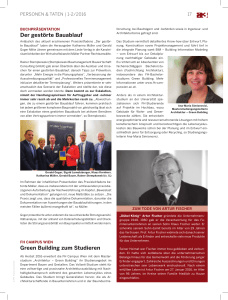
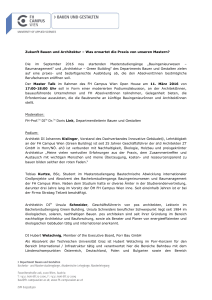
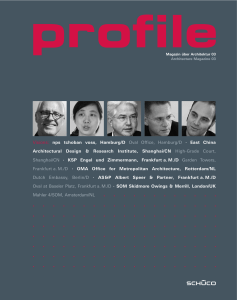
![die architektur [] - Alte Universität Graz](http://s1.studylibde.com/store/data/008186098_1-c51ac2829ba5fdf4e4250ceee219a1ea-300x300.png)
